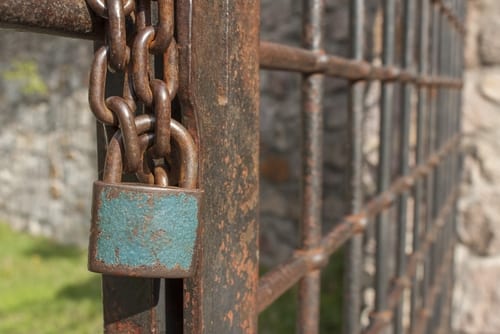There is a lesser-known halacha that one is not permitted to leave a sefer open when one is not using it. The source for this is based on a ruling in the Shulchan Aruch (Yoreh Deah 277:1. See also Shabbat 5b with Ran; Eruvin 98a). The Shulchan Aruch writes that after a sofer writes a column of a Torah scroll, he may not place the column face down in order for it to dry. This is true even if the sofer’s intention is simply to protect the parchment, such as to ensure that no dust will settle upon it or that the parchment will otherwise not get ruined in any way. Placing the scroll face down is considered to be unbecoming, regardless of one’s intention. Instead, the sofer must leave the parchment face up and simply spread a cloth of some sort upon it in order to protect it should one feel the need to do so.
Based on this ruling, the Bach, along with a number of other achronim, rule that one is not permitted to leave a sefer lying open. This is true even when taking leave of a sefer for only a few moments, such as to take a call or use the restroom. One should not place a sefer face down even if one does so with the intention of saving one’s place. Indeed, one should turn over any sefarim that one finds upside down.
It is explained that the reason for this is because there is an angel whose name is “Sheid” – an abbreviation for ”shomer dapim”- who causes anyone who leaves a sefer open to forget what he has learned (Shach, Yoreh Deah 277:1). One who takes leave of a sefer and, for whatever reason, prefers not to close it, is required to cover the open pages with a cloth or the like. Other authorities rule that it is permitted to leave a sefer open for a short period of time, such as to use the washroom, or even for an extended period of time, as long as one remains nearby and intends to continue using the sefer (Aruch Hashulchan, Yoreh Deah 277:2; Avnei Yashfei 1:202; however, see Kaf Hachaim [Palagi] 20:11).
Some authorities require the pages of an open sefer to be completely covered in accordance with the literal reading of the Shulchan Aruch. Others rule that it is sufficient to partially cover the open pages. These authorities maintain that a covering of any sort will adequately serve to convey to passersby that the sefer has not been abandoned (Salmat Chaim 377). Some authorities rule that if someone else remains in the vicinity of the sefer during one’s absence then there is no need to cover it (Kol Yakov [Sofer] 277:3). One may use another sefer to cover the pages of an open sefer (Sefer Chassidim 909; see also Magen Avraham 154:14; Mishna Berura 154:31; Tzedaka Umishpat [Balvia] 16:27).
Rav Ephraim Greenblatt discusses the practice in many yeshivot in which one who wishes to secure a chair or shtender for himself places an open sefer upon it in order to convey to passersby that the item has been “taken.” This is often done hours before a study session is set to begin. Rav Greenblatt suggests that perhaps this conduct can be justified as it saves one precious study time from having to look for a chair, shtender, or place at a table when the study session starts. He qualifies this ruling, however, and says that one should only use a sefer for this purpose that one intends to learn from once the study session starts. He also cites others who disagree with this ruling. Alternatively, in such a situation one can open the sefer to its title page. Indeed, leaving a sefer open at its title page is not considered to be leaving a sefer open (Rivevot Ephraim 4:213).
It seems that there is, or used to be, at least, a custom to leave a sefer open upon the kisei shel eliyahu a day or two before a brit. According to all that was cited above, however, this custom is improper and should be discontinued (Birkei Yosef, Yoreh Deah 277:2).8





